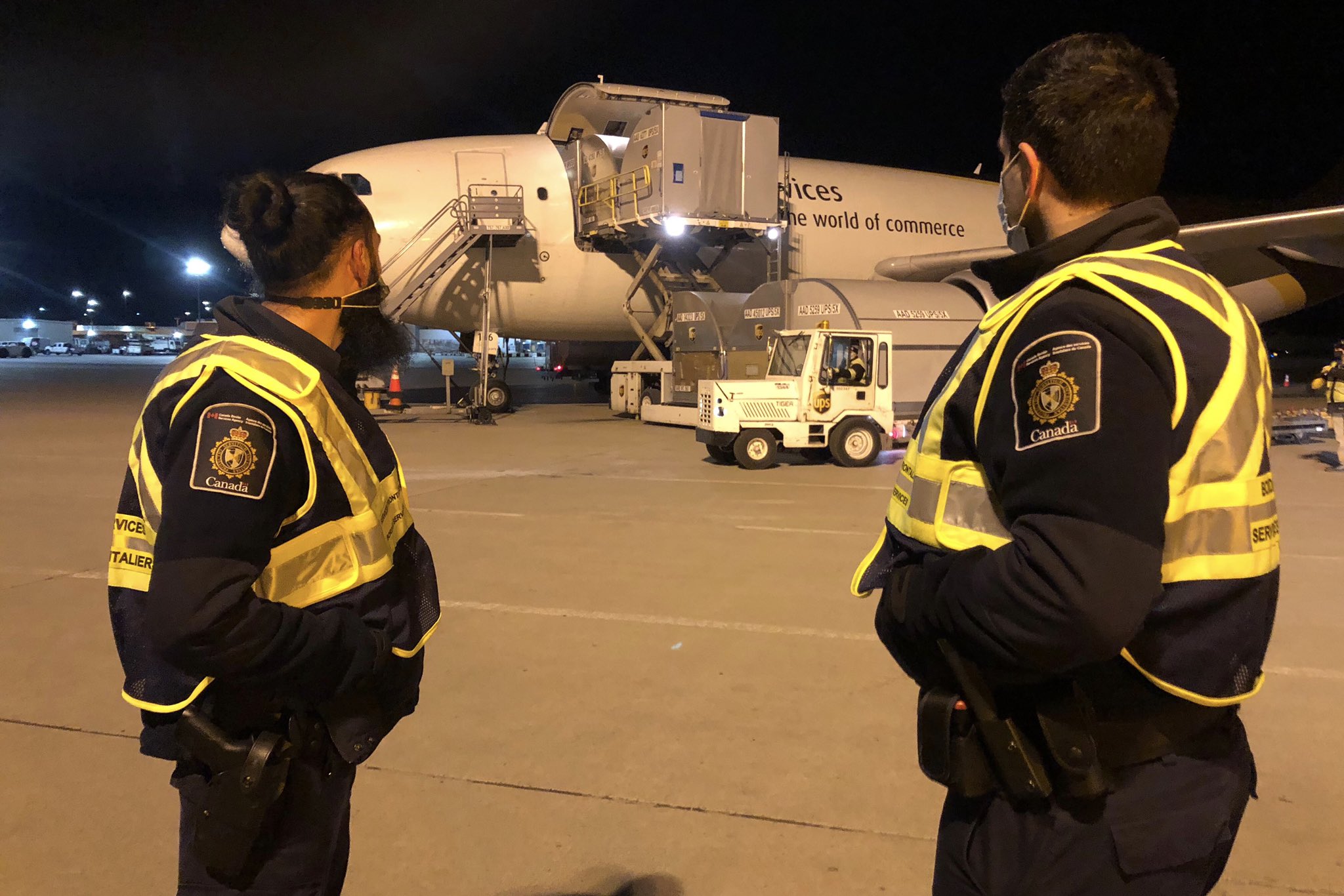The first shipments of the COVID-19 vaccine have arrived in Canada.
Prime Minister Justin Trudeau made the announcement just before 8 p.m. Sunday night on Twitter, noting that while it’s “good news”, the fight against COVID-19 is not over and Canadians must keep up their vigilance.

The Public Health Agency of Canada said some of the 30,000 initial doses of the Pfizer-BioNTech vaccine will begin to be transported to 14 distribution sites across the country Sunday night, with more crossing the border via plane and truck on Monday.
There are distribution sites in all 10 provinces, but none in the territories because health officials say the Pfizer shot’s -70 C storage temperature make it difficult to stock there.
News of the vaccine’s arrival comes as Canada confirmed 5,891 new cases of the virus on Sunday, pushing the total nationwide past 460,000. Another 81 people have died from the virus, raising the overall death toll to 13,431.
Quebec is expected to be the first province to administer the vaccine, saying it’s prepared to start inoculating residents of two long-term care homes as early as Monday.
Beverly Spanier, a 75-year-old resident of Montreal’s Maimonides Geriatric Centre, calls a miracle.
“We’re celebrating Hanukkah, which is a time of miracles. It’s absolutely a miracle that we’re about to receive this vaccine so quickly,” Spanier, who is paralyzed from the waist down, said in an interview Sunday.
Francine Dupuis, associate CEO of the Montreal regional health agency, said she expects to receive two boxes each containing 975 doses of the vaccine.
She said teams of health-care workers have been ready to administer the vaccines since Friday, but that they don’t know when the shipments will arrive exactly.
“It’s a well-kept secret,” Dupuis said in an interview Sunday morning. “No one knows right now.”
About 90 to 95 percent of eligible Maimonides residents have accepted to take the vaccine, she said. That means between 300 and 350 residents will be inoculated.
Health-care workers at Maimonides will be vaccinated next, and then the remaining doses will go to health-care workers at other long-term care homes, Dupuis said.
She said none of the initial doses would be set aside, as more shipments are expected to arrive to ensure people get their required second shot 21 days later.
“The important thing to remember is that we can’t lose doses,” Dupuis said. “We need to have a scenario where there are enough people who will come so that all the doses are used.”
Spanier said while she is extremely grateful to be receiving the vaccine, she is well aware of the toll COVID-19 has taken on those around her.
“It’s not a time for happy partying because we’re getting this vaccine,” she said on Sunday.
“It’s a time to remember: remember what this means, remember the losses that we had, remember that we want to protect every other person we can protect from getting this disease.”
The other long-term care centre to receive doses is Saint-Antoine in Quebec City, where public health officials said resident Gisele Levesque would be the first to be vaccinated.
Her nieces, in a press release, said Levesque, who moved into the facility just as the pandemic broke out in March, was calm and direct about being No. 1 on the list, saying simply, ‘I was chosen, of course.’”
Other provinces say they’ll vaccinate long-term care residents and front-line health-care workers later in the week.
While it’s unclear what percentage of people will opt to be vaccinated, demand appears to be very high in at least one province.
In Manitoba, which reported 273 new COVID-19 cases and seven additional deaths linked to the virus on Sunday, the government said it received over 100,000 calls from people trying to book appointments for the vaccine.
Only 900 spots are available to receive the first doses of the Pfizer-BioNTech vaccine, however, with strict criteria on who is eligible. Half the spots were already filled by Sunday morning, the province said.
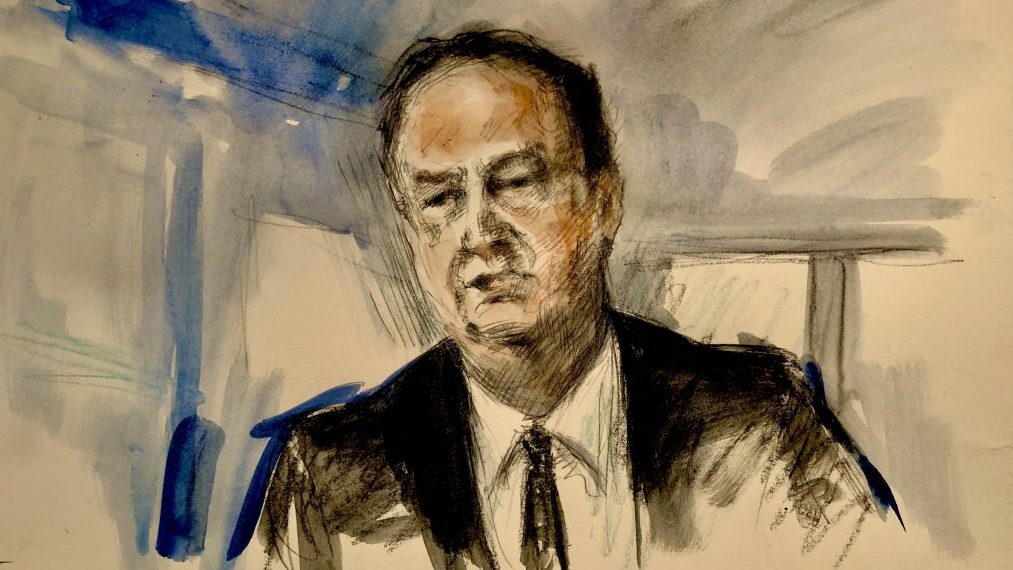
The prosecution’s final witness in the Toronto van attack trial will continue his testimony on Friday.
CityNews reporter Adrian Ghobrial is covering the trial, follow his tweets below:
On Thursday, Dr. Scott Woodside, a forensic psychiatrist at Toronto’s Centre for Addiction and Mental Health, said Alek Minassian told him he believed he would fail in life so he committed the attack that killed 10 people as a way to make his mark in the world.
He said Minassian was particularly worried he would fail at at the job he had lined up for the end of April.
Woodside also testified that Minassian struggled with loneliness and told him that he might have delayed the attack had he been able to finally have a relationship with a woman. That never happened.
The 28-year-old from Richmond Hill, Ont., has pleaded not guilty to 10 counts of first-degree murder and 16 counts of attempted murder.
The defence argues Minassian should be held not criminally responsible for his actions on April 23, 2018, due to autism spectrum disorder.
Minassian’s state of mind is the sole issue at trial since he has admitted to planning and carrying out the attack.
RELATED: ‘His goal was to be remembered forever:’ psychiatrist says of van attack killer
Minassian has been described by various psychiatrists and psychologists as being highly intelligent with immense social struggles, largely due to autism spectrum disorder.
Woodside said while Minassian never had a relationship with a woman, it wasn’t his sole focus.
Woodside also said Minassian was insightful, which is the opposite picture that has been painted by defence-retained experts at trial.
He said Minassian told him “I don’t think I was mentally ill at the time, to be honest.”
Court has heard that Minassian told various doctors that he long fantasized about school shootings, which helped him work through his anger, especially in high school when he was bullied.
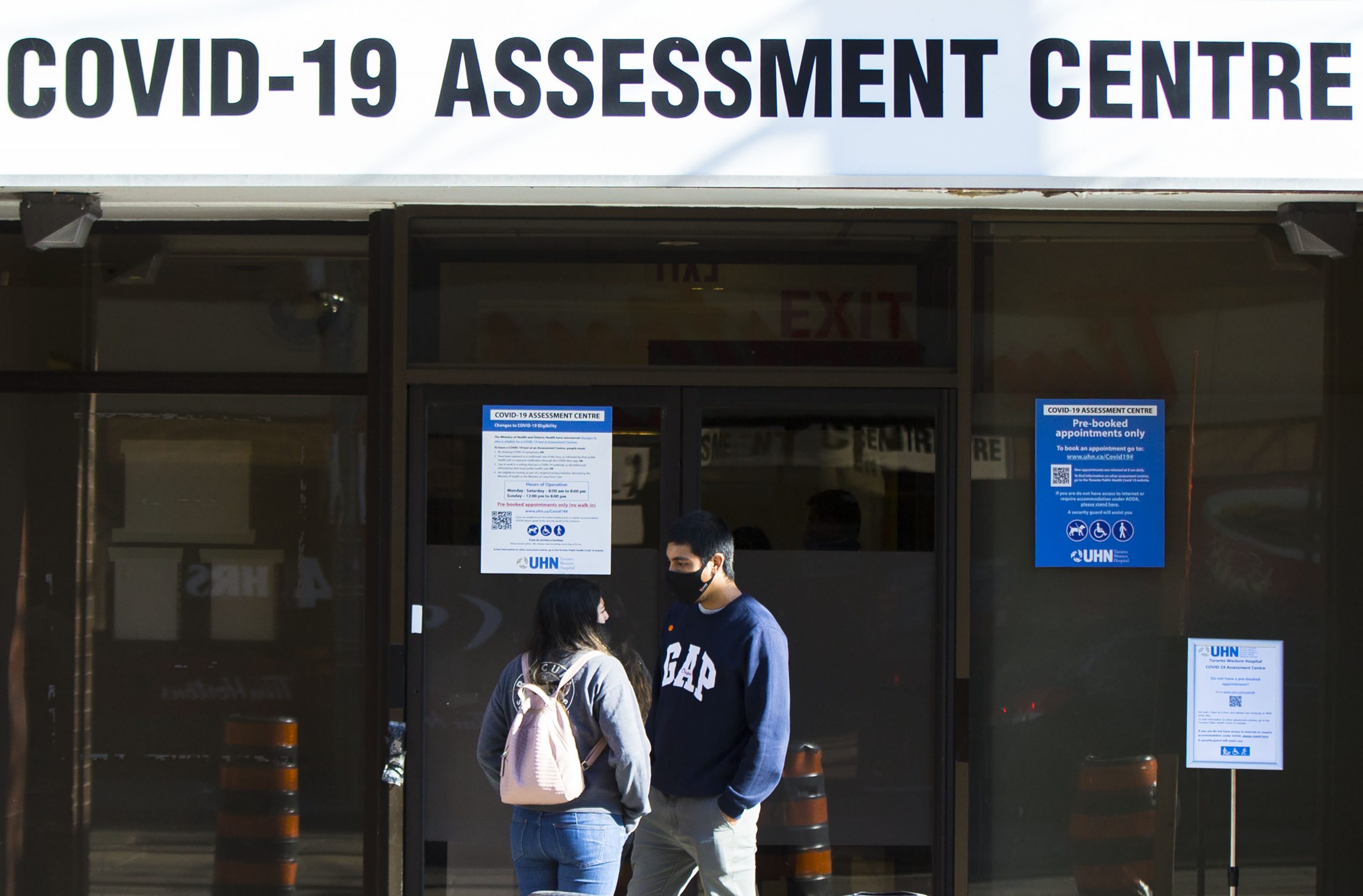
COVID-19 Deaths are expected to increase over the next few weeks and could exceed 25 deaths per day within a month, according to new projections from Ontario health officials. Ontario reported 35 deaths on Thursday.
Cases of COVID-19 continue to increase across the province, however the percentage of positive tests appear to be flattening.
Based on current projections, if Ontario remains at the status quo for cases, we would stay under 2,000 cases a day through to mid-January.
If there is one per cent growth, the province could hit 2,500 cases per day. In the worst case scenario, at five per cent growth, there could be almost 10,000 cases per day by Jan. 10.
The ICU occupancy is expected to remain above 200 beds for the next month and could go higher if restrictions are relaxed.
There has been an over 90 per cent increase in hospitalizations over the last four weeks and a 165 per cent increase in ICU patients.
Test positivity remains the highest in Peel Region at 11 per cent, followed by York Region and Toronto at six per cent.
Health officials say restrictions first introduced in September up until Nov. 16 has not nearly had as much impact on people’s mobility and contacts as it did during the original March lockdown in Toronto and Peel Region, however mobility data since the current lockdown began in those areas has not been provided by the province.
The original data from the province compared the two lockdowns, but health officials clarified what the mobility data represented during the presentation of the projections.
The mobility numbers were calculated up until Nov. 16 are based on devices leaving their homes. During the initial lockdown in March and April, mobility dropped just over 75 per cent in Toronto and Peel Region to around 40 per cent.
As of Nov. 16, both have hovered around 60 per cent.
Chief Medical Officer of Health Dr. David Williams said data indicated residents were not heeding calls to cut non-essential travel as much as they did during the province’s first shutdown in the spring.
He said people need to stay home as much as possible, especially as the holidays approach, if Ontario is to be successful in fighting the virus.
“There’s a lot of people out there on the move,” said Williams. “We have got to get that down.”
The reproduction number of the virus is fluctuating around one, which health officials say means we are at a critical juncture where case rates can change quickly.
Contract tracing continues to be an issue in Toronto as 70 per cent of cases have no epidemiological link. The next highest is Peel Region at 28 per cent.
Dr. Adalsteinn Brown, one of the experts behind the projections, said the virus’ growth rate is fluctuating around one to one and a half per cent, which means that Ontario is at a “critical juncture.”
Even if Ontario limits the growth rate of the virus to zero per cent, the province will still see around 2,000 cases daily by the end of the month. If growth accelerates to five per cent, Ontario will see 10,000 cases a day by the first week of January.
“It’s really important to understand that at this point, where the reproduction number is fluctuating around one, small changes, even just in a little bit of time, can lead to substantial growth,” Brown said.
Williams cautioned that any relaxation of public health measures would likely lead to increased case growth.
He said he will recommend additional restrictions for some regions, which will likely be announced Friday.
“We’re in a very precarious stage here and we have to really watch carefully if we are not going to have to close some things further,” he said.
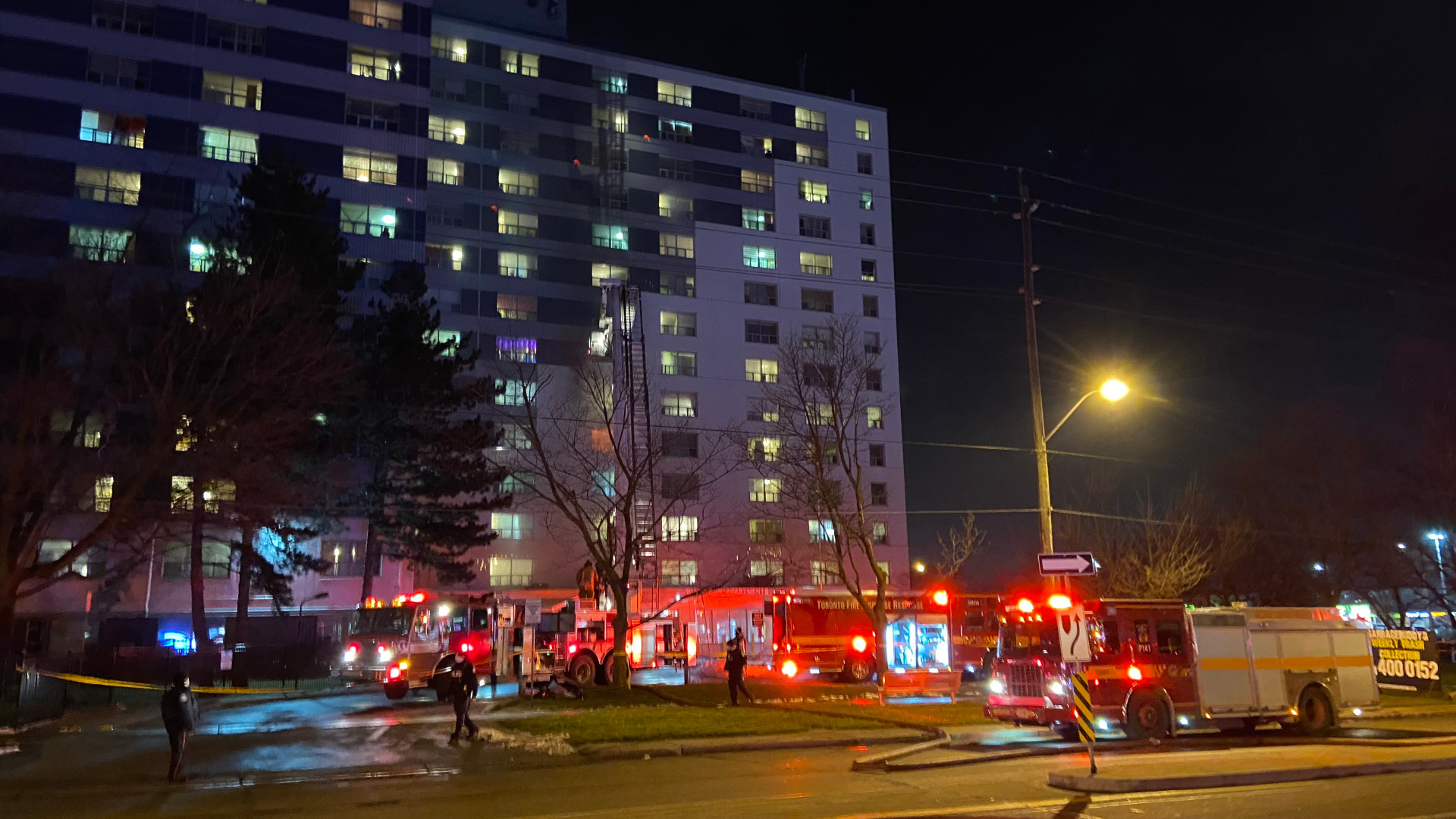
Four people, including two firefighters, were injured after a five-alarm blaze ripped through a Toronto Community Housing building in North York.
As many as 50 firefighters were on scene to battle the fire which broke out in a 14-story residential building on Bathurst Street just south of Steeles Avenue just after 8:30 p.m.
Firefighters were greeted by heavy smoke coming from the fifth floor of the building in what Fire Chief Matthew Pegg called a “difficult and complicated incident.”
A woman was found on the fifth floor by fire crews without any vital signs. They began administering life-saving measures but because of the smoke and flames from the fire, she needed to be carried down by a ladder to paramedics. She was transported to a trauma centre in life-threatening condition along with a second individual.
Two firefighters, including a Toronto fire captain, were also taken to hospital and treated for smoke inhalation.
“The heat and fire conditions on the fifth floor were significant,” said Acting Fire Chief Jim Jessop while praising the work of firefighters.
“You can imagine walking into a chimney …close your eyes and think of the heat and smoke coming out of a fire and that’s exactly what our staff had to fight their way through to knock the fire down.”
Officials said the blaze had been brought under control some three hours after it started but crews were still dealing with significant smoke and heat.
TTC shelter buses were sent to the scene to assist those who had to be evacuated from the floor where the fire originated but fire officials say most of the residents were told to shelter in place due to the heavy smoke.
The Ontario Fire Marshal’s office along with the Toronto Fire investigations division have been called in to investigate.
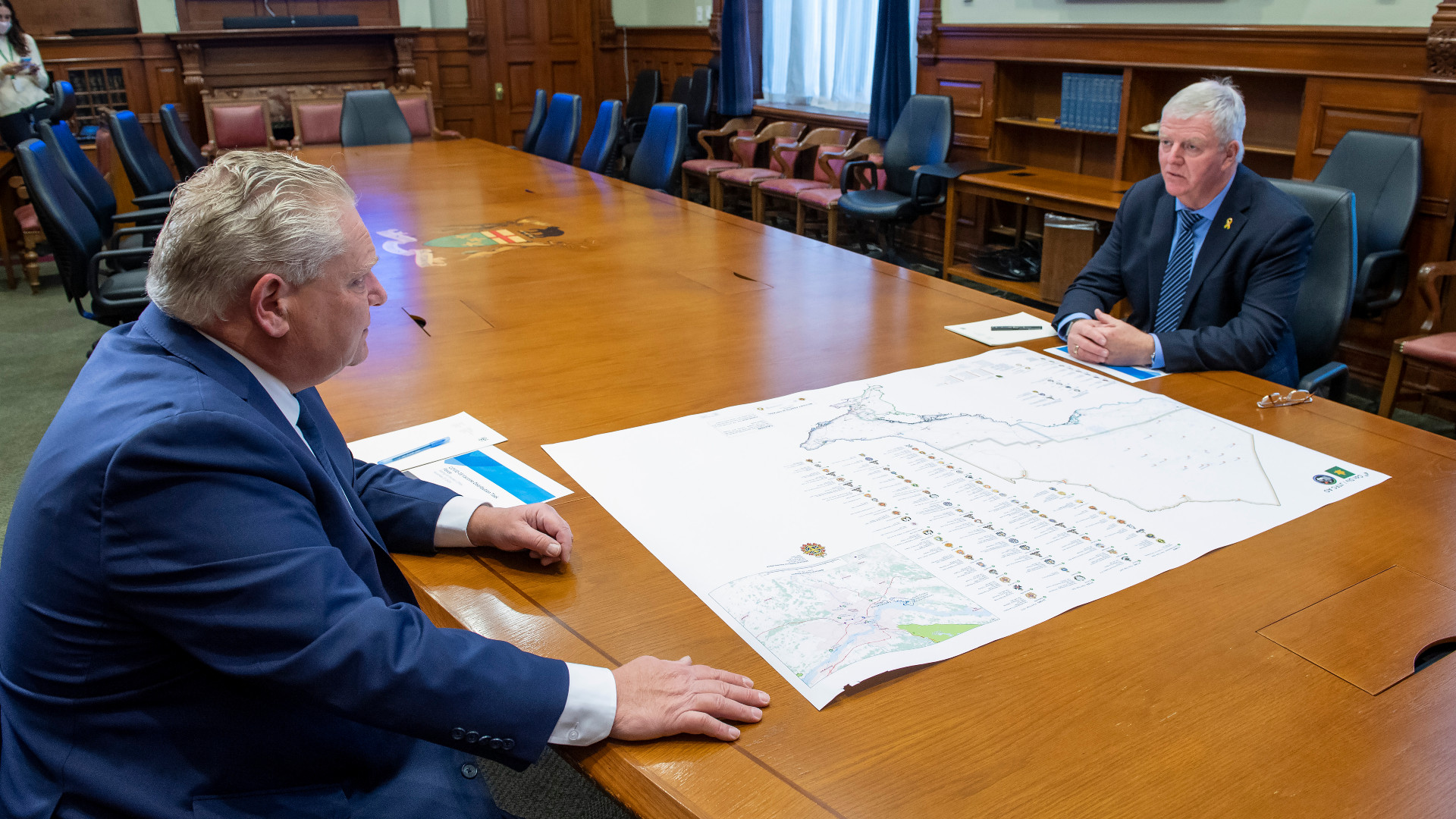
Ontario is expected to provide an update today on its plans to rollout the COVID-19 vaccine.
The province has said that it will begin immunizations with its first shipment of 6,000 doses on Tuesday.
Retired gen. Rick Hiller says University Health Network in Toronto and the Ottawa Hospital will administer the first shots to health-care workers.
An additional 90,000 doses of the Pfizer vaccine expected later this month in the province are to be provided to 13 hospitals across Ontario.
Hillier says the province also expects to receive between 30,000 and 85,000 doses of the Moderna vaccine by the new year, pending its approval by Health Canada.
The province is also expected to announce additional restrictions for regions in the province as case counts rise.
Celebrating the Holiday season with a collection of recipes that are sure to impress! Whether you’re hosting a pandemic friendly gathering of your bubble or on your own, these easy recipes will add some cheer to your holiday spirit.
Pistachio crusted lamb lollipop with pomegranate and mint salad
By: Chef Randy Feltis

INGREDIENTS
POMEGRANATE MINT SALAD
METHOD
Serves 8 appetizers
Cook time 10 minutes
Rest time 6 minutes
Special tools butcher twine, cast iron pan
- Trim the fat down to the top of the eye of the rack. Scrap off excess fat with a knife or pull off with butcher twine.
- Season heavy with salt and pepper and sear backside down in hot cast iron pan. When golden turn onto fat cap and place in oven at 450 degrees. Roast for 7-9 minutes, when the eye starts to push back remove and let rest for 6 minutes.
- Brush with mustard and crust with pistachio.
- Carve between the bones and place on platter.
- For the salad toss fresh pomegranate with herbs and olive oil. A squeeze of lime and salt and pepper.
Place on lamb lollipop and serve.
Herb, apple apricot & lemon zest stuffing
By: DEVAN RAJKUMAR

This stuffing is packed with fall flavour and fresh herbs. Cook and mix your stuffing in advance or even the night before. Simply bake when ready to serve! This recipe will become a family favourite and all around staple at every Thanksgiving dinner.
METHOD
- Pre-heat oven to 400F. Butter a 9 x 13-inch baking dish.
- Melt butter on medium heat in a large sauté pan or pot. Add white onions, Spanish onions, fennel, salt and pepper. Sauté until golden brown, about 7-10 minutes. Add garlic and cook, stirring, for 10-15 seconds. Tip all ingredients into a large mixing bowl.
- To the bowl add chopped apricots, granny smith apples, honey crisp apples, chicken stock, sage, parsley, bread cubes and eggs. Mix well to combine. Transfer stuffing mixture to prepared baking dish.
- Bake, uncovered, for 30 minutes, until top is golden brown and bread is tender. Let cool slightly. Sprinkle with chives before serving.
Apricot-almond rugelach
By: Amy Rosen

INGREDIENTS
FOR THE FILLING
FOR THE TOPPING
METHOD
For the dough,
- Place the flour, butter, cream cheese, sugar, and vanilla in a food processor. Pulse until uniform large ball forms.
- Divide into three equal balls and wrap each in plastic wrap.
- Refrigerate for at least 3 hours or, even better, overnight.
For the filling
- To prepare the filling, warm the jam in a small pot over low heat or in the microwave for 30 seconds. Set aside.
- In a bowl, crush the toasted almonds with your hands, or place them in a resealable plastic bag and crush with a rolling pin.
For the topping
- Mix the sugar with cinnamon in a small bowl and set aside.
Assembly
- Line two baking sheets with parchment paper. Remove the dough from the fridge about 30 minutes before using. On a well-floured surface, roll out one of the dough balls into a large circle, about 12 inches in circumference and about ⅛ inch thick. Repeat with the remaining two dough ball
- Preheat the oven to 350°F.
- Using a knife or pizza cutter, slice each circle into 16 wedges and separate them slightly. Evenly divide the jam and almonds among the three circles (this comes out to about ½ teaspoon jam and a pinch of nuts per rugelach), leaving ½ inch clean at the outer edge.
- Roll the wedges into crescents by rolling the wider outer edge in toward the point.
- Place on the baking sheets, at least 1 inch apart, with the point sides dow Brush the tops of the rugelach with beaten egg and sprinkle with the cinnamon sugar.
- Bake in the middle of the oven for 20–22 minutes, or until golden brow These can be stored in an airtight container at room temperature for up to 1 week.
Excerpted from Kosher Style: Over 100 Jewish Recipes for the Modern Cook by Amy Rosen. Copyright © 2019 Amy Rosen. Published by Appetite by Random House®, a division of Penguin Random House Canada Limited. Reproduced by arrangement with the Publisher. All rights reserved.
Lacy Latkes & Applesauce
By: Amy Rosen

INGREDIENTS
HOMEMADE APPLESAUCE
METHOD
- Using a food processor or box grater, grate the potatoes (no need to peel them). Transfer the potatoes to a clean tea towel or cheesecloth and squeeze out the potato liquid, getting the shreds as dry as possible.
- Place the potatoes in a very large bowl and mix together with the chopped onions, eggs, flour, salt and pepper. The acid in the onions will stop the potatoes from browning.
- In a large cast-iron skillet (or other heavy-bottomed skillet), heat ½ inch of oil over medium heat. Add heaping tablespoons of latke mixture, frying four or five at a time, for about 3 minutes on each side, or until golden brown. Smoosh them down with the spatula a bit and add more oil as needed.
- When the latkes are cooked, transfer them to a plate lined with paper towel to drain. You can serve these immediately or cook them ahead and reheat in the oven when guests arrive. Serve with applesauce, sour cream or Greek yogurt.
Note: If you garnish with sour cream or yogurt, this recipe will become dairy.
SERVES 6-8 S
(continued)
- Homemade Applesauce: In a medium pot, bring the apples, lemon juice, sugar, cinnamon, salt and water to a boil. Lower heat to a simmer, stirring often, until the apples are cooked and start falling apart, about 15 minutes. Blitz in the pot with an immersion blender until the desired consistency is achieved. Serve with latkes.
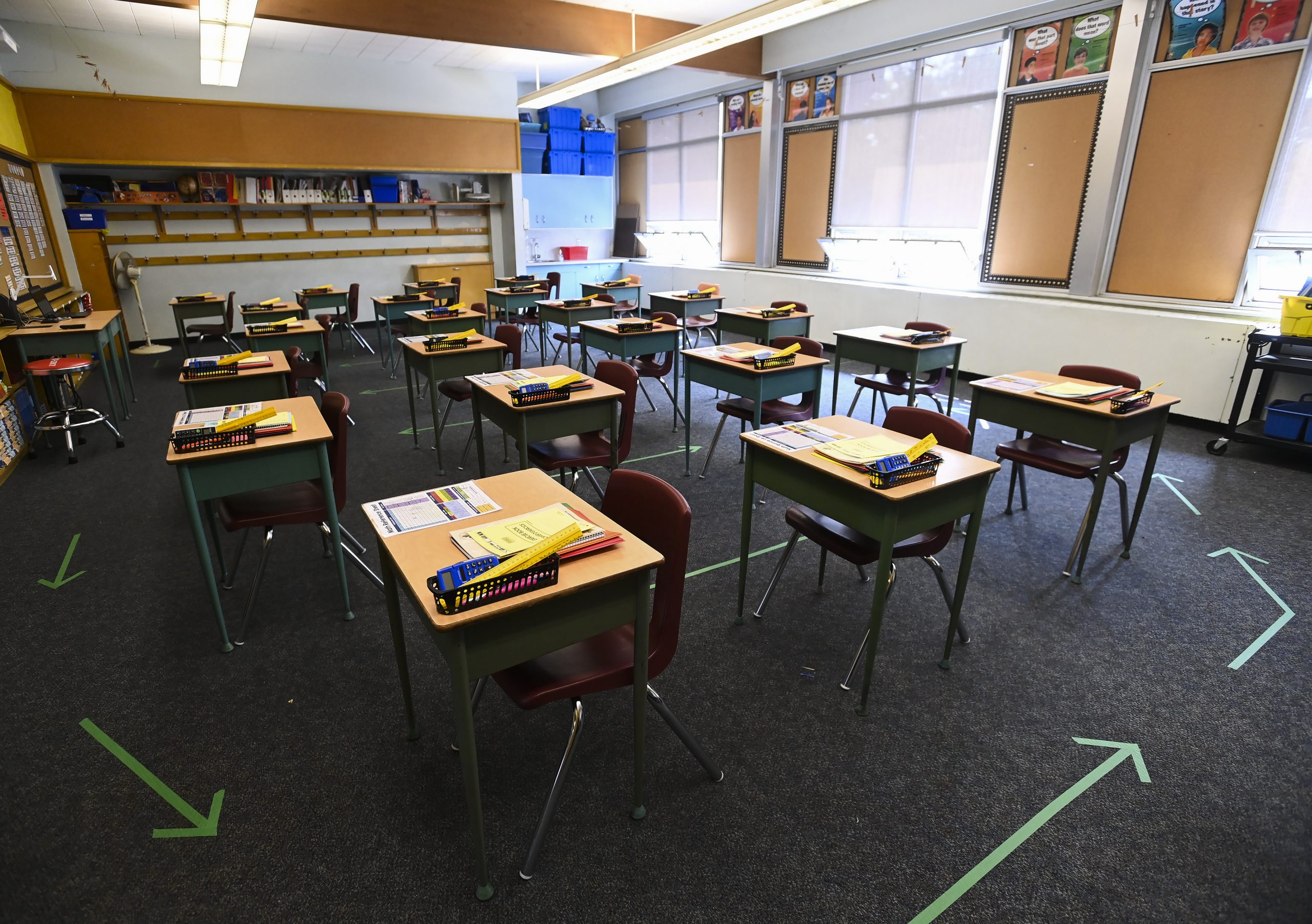
The Ontario Secondary School Teacher’s Federation (OSSTF) has sent an open letter to Ontario’s government and Toronto Public Health “calling for extended asymptomatic COVID-19 testing and for schools to remain closed for the first two weeks of January.”
This comes after the Toronto District School Board (TDSB) announced that Marc Garneau Collegiate Institute in North York will be closed until January due to COVID-19 cases.
“The current pilot project of school-based, voluntary COVID-19 testing for asymptomatic cases has focused and clarified the COVID-19 picture in some select schools in Toronto, resulting in the closure of two Toronto District School Board elementary schools to date,” OSSTF said in a statement.
“On behalf of all Teachers and Education Workers at the Toronto District School Board, we are calling on the Ontario Ministers of Education and Health, Toronto Public Health and the Toronto District School Board to extend this pilot project in order to assess the prevalence of asymptomatic COVID-19 cases in schools across the City on a regular and ongoing basis.”
Teachers and education workers are also calling on the government and health officials in the city to move all schools to online learning beginning January 4, for at least the first two weeks after New Years’ Day.
In the letter, signed and approved by several high-ranking school officials, they said the extended break will also allow for “regular, ongoing, school-based, voluntary asymptomatic testing of students and staff when the schools do reopen.”
RELATED: Asymptomatic COVID-19 testing program underway at Toronto schools
“Premier [Doug] Ford repeatedly says his Government will do everything in its power to fight the COVID-19 pandemic, yet so far his government has refused to provide adequate funding to reduce elementary school classes to accomplish safe physical distancing, refused to provide timely or adequate funding for the upgrade of school air exchange systems, and has not provided adequate resources for contact tracing,” the OSSTF added.
“We are calling on him to take these two actions to ensure a safer start to the New Year.”
There are two other schools in the TDSB that have closed due to COVID-19 cases. Thorncliffe Park Public School has reported 29 cases of COVID-19 among students and two among staff. A total of 17 are considered resolved.
Fraser Mustard Early Learning Academy has reported seven cases of COVID-19 amongst students. One is considered resolved.
On Monday, Toronto and Peel’s Public Health units updated their screening tools, laying out increasingly strict protocols for when parents need to keep their children home from school.
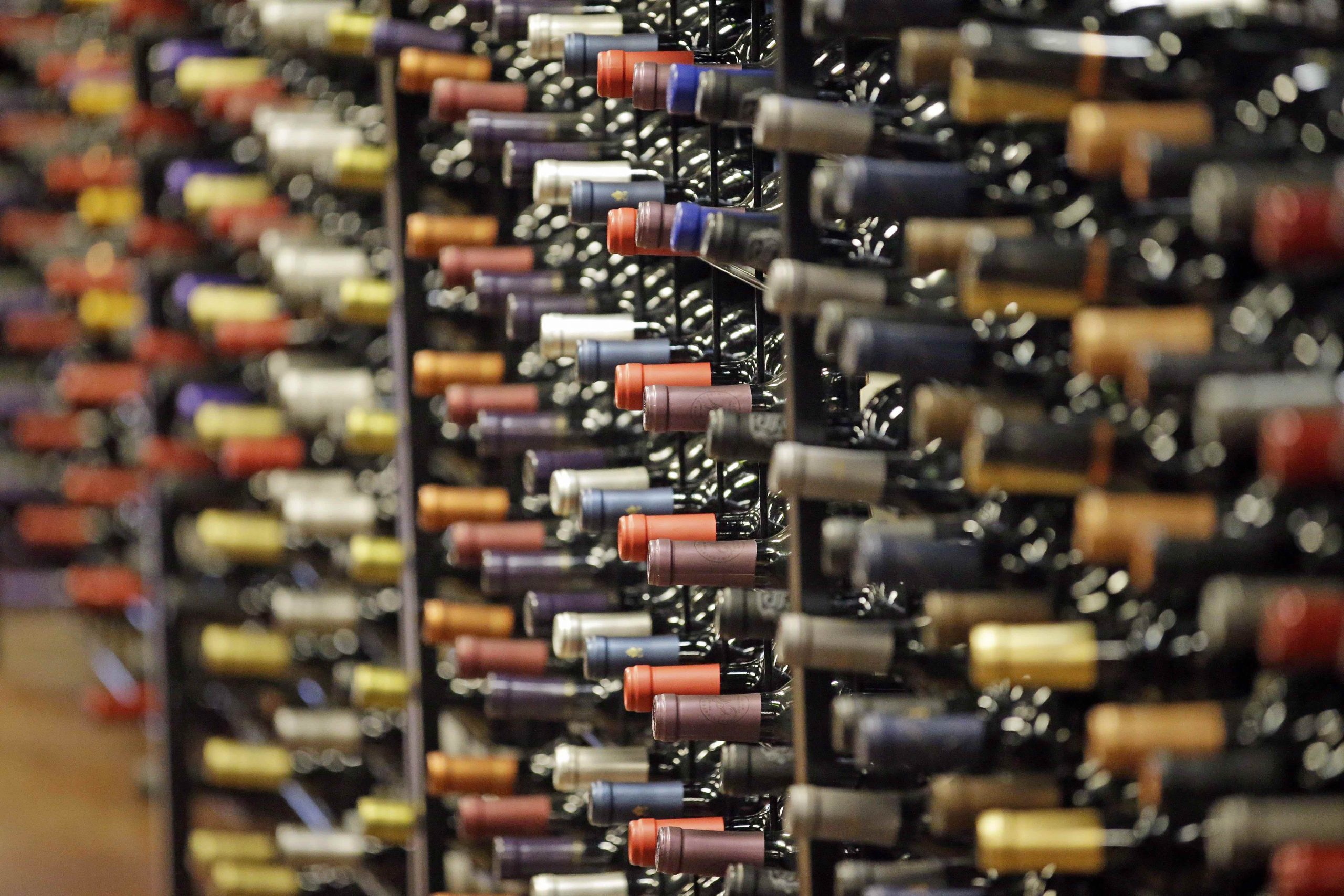
The provincial government has made allowing alcohol in takeout and delivery orders from restaurants permanent.
The Alcohol and Gaming Commission of Ontario announced back in March that bars and restaurants that already have a liquor license would be able to sell alcohol, including through a third-party app.
Bars and restaurants have been struggling during the COVID-19 pandemic and were recently forced to shut down for indoor and outdoor dining in Toronto and Peel Region due to rising case numbers.
In a release from the province, Attorney General Doug Downey said, “We’re building on the actions we took early in the pandemic to support local restaurants, bars and other businesses by providing permanent help to workers and small businesses as they face these ongoing challenges.”
There is no limit on the quantity of alcohol that can be purchased for takeout or delivery, but the drinks must be sold in sealed and unopened containers, according to the rule, which also states such sales must take place between 9 a.m. and 11 p.m
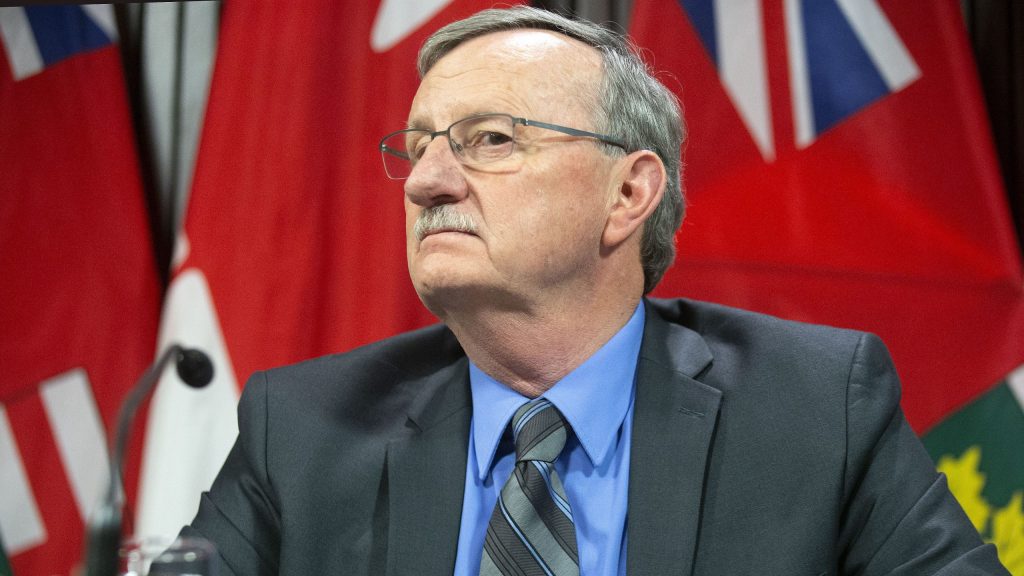
The Ontario government will provide new COVID-19 projections Thursday.
The province’s chief medical officer of health said earlier this week that the data will indicate whether lockdowns in Toronto and Peel Region that started two weeks ago are working.
RELATED: COVID-19 vaccine expected to be available for all Canadians before end of September: health officials
The last round of projections showed case rates had plateaued, but hospitals faced increasing strain due to the pandemic.
Experts described the data two weeks ago as showing Ontario was in a “fragile or precarious situation.”
Those figures also showed the number of patients in intensive care units had passed the threshold where surgeries may need to be cancelled.
Projections released early last month suggested Ontario could see as many as 6,500 new daily cases by mid-December unless steps were taken to limit the spread of the virus.
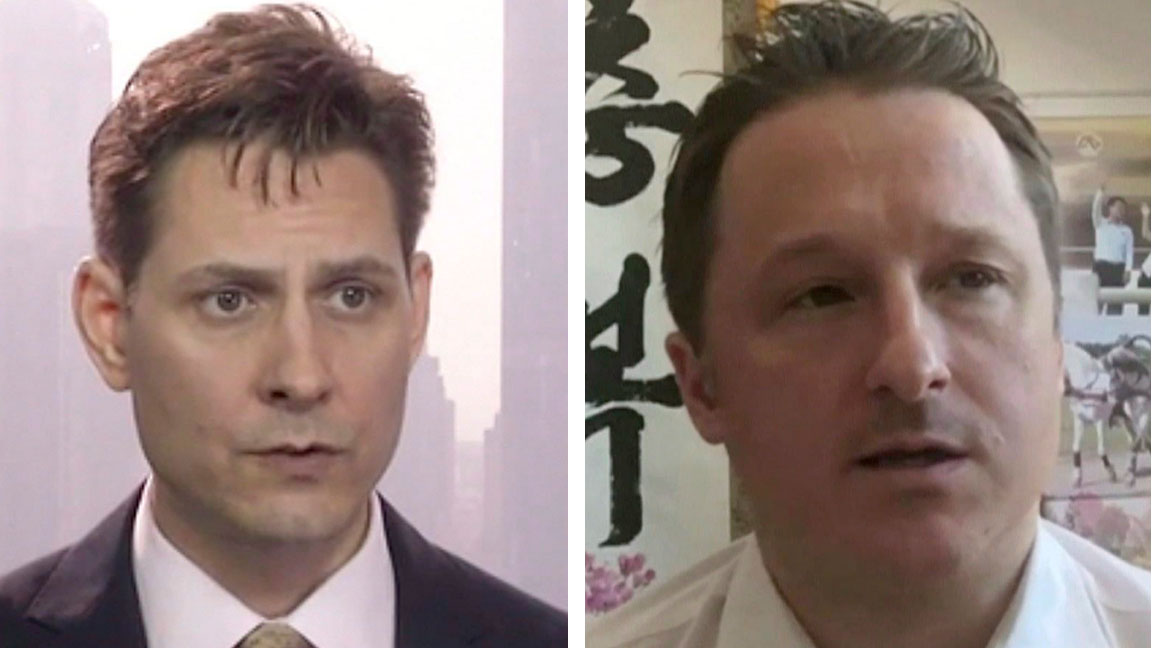
China’s Foreign Ministry says two Canadians held for two years in a case linked to a Huawei executive have been indicted and tried, but gave no details.
Former diplomat Michael Kovrig and businessman Michael Spavor have been confined since Dec. 10, 2018, just days after Canada detained Huawei executive Meng Wanzhou, who is also the daughter of the founder of the Chinese global communications equipment giant.
China has said they are being held on suspicion of national security crimes but neither it nor Canada has released specifics about their cases.
At a daily briefing Thursday, Chinese Foreign Ministry spokesperson Hua Chunying said the two had been “arrested, indicted and tried,” in what appeared to be the first public mention that they had been brought to court. China says their cases are not connected to Meng’s detention but has consistently linked them to its demands that Meng be immediately released.
More to come

initial deliveries of ????????’s 20M doses of this vaccine.









